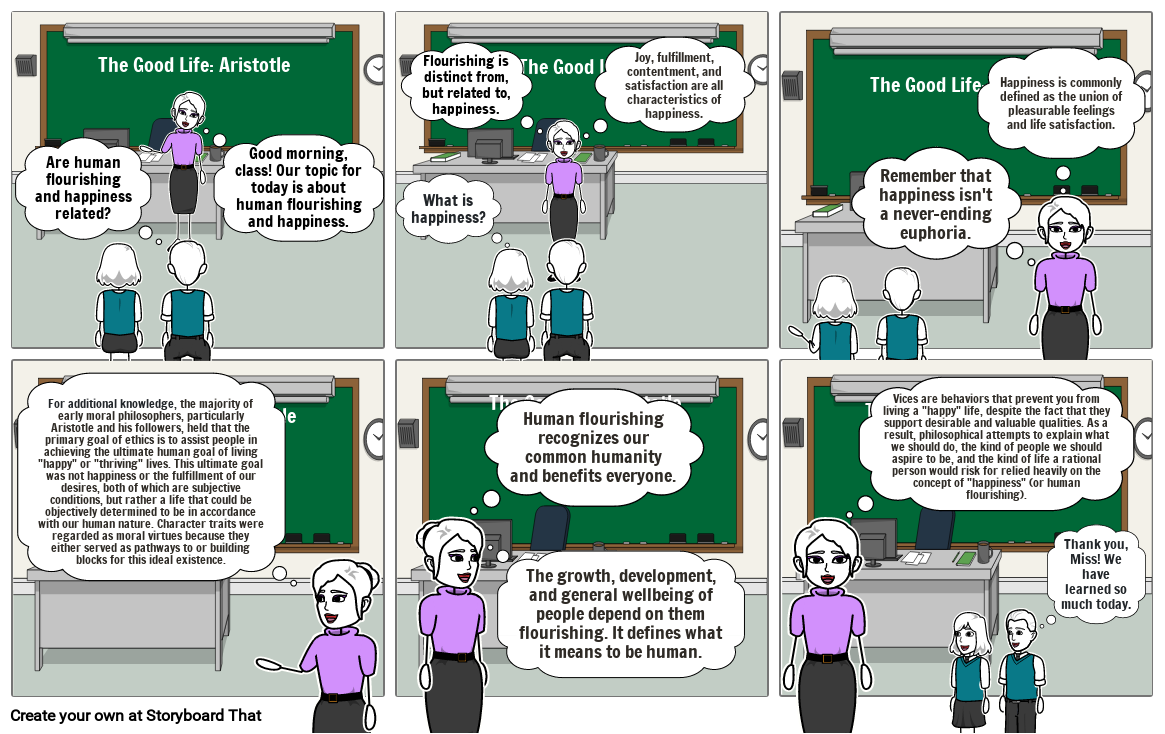Bone formation

Storyboard Text
- Are human flourishing and happiness related?
- The Good Life: Aristotle
- Good morning, class! Our topic for today is about human flourishing and happiness.
- What is happiness?
- Flourishing is distinct from, but related to, happiness.
- The Good Life: Aristotle
- Joy, fulfillment, contentment, and satisfaction are all characteristics of happiness.
- The Good Life: Aristotle
- Remember that happiness isn't a never-ending euphoria.
- Happiness is commonly defined as the union of pleasurable feelings and life satisfaction.
- For additional knowledge, the majority of early moral philosophers, particularly Aristotle and his followers, held that the primary goal of ethics is to assist people in achieving the ultimate human goal of living "happy" or "thriving" lives. This ultimate goal was not happiness or the fulfillment of our desires, both of which are subjective conditions, but rather a life that could be objectively determined to be in accordance with our human nature. Character traits were regarded as moral virtues because they either served as pathways to or building blocks for this ideal existence.
- The Good Life: Aristotle
- The Good Life: Aristotle
- Human flourishing recognizes our common humanity and benefits everyone.
- The growth, development, and general wellbeing of people depend on them flourishing. It defines what it means to be human.
- The Good Life: Aristotle
- Vices are behaviors that prevent you from living a "happy" life, despite the fact that they support desirable and valuable qualities. As a result, philosophical attempts to explain what we should do, the kind of people we should aspire to be, and the kind of life a rational person would risk for relied heavily on the concept of "happiness" (or human flourishing).
- Thank you, Miss! We have learned so much today.
Over 30 Million Storyboards Created
No Downloads, No Credit Card, and No Login Needed to Try!
